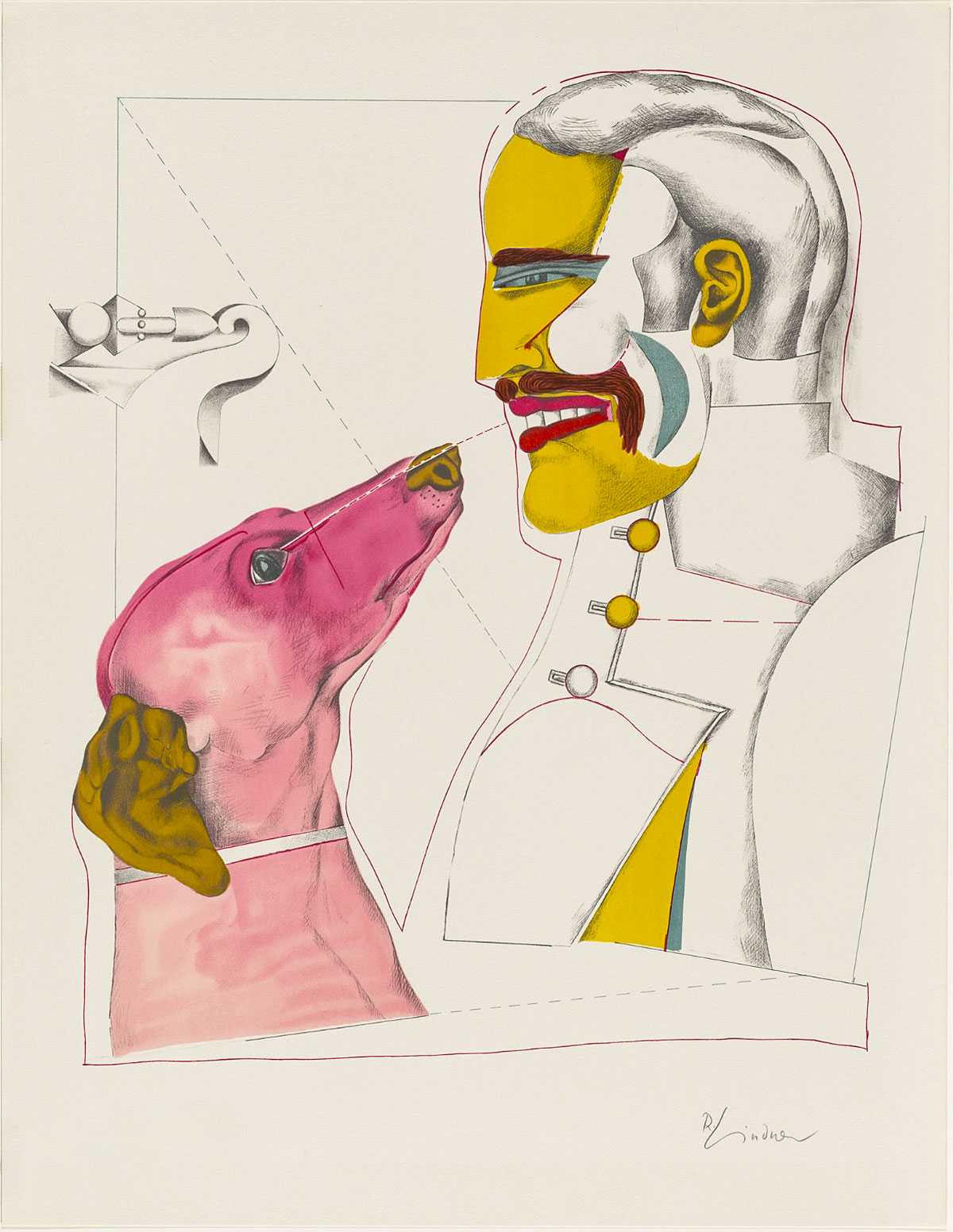
Man’s Best Friend by Richard Lindner
Robert Fontaine Gallery
1969
Sheet Size: 24.25 x 20.75 inches
Signed
Condition: Pristine
Price on Application

1969
Sheet Size: 24.25 x 20.75 inches
Signed
Condition: Pristine
Price on Application
Lindner’s career began as an art director for a publishing firm in Munich until he was forced to flee Nazi Germany in 1933. After moving first to Paris, Lindner settled in New York in 1941, where he became a highly successful illustrator for magazines including ‘Vogue’ and ‘Harper’s Bazaar’. He began painting seriously in 1952, holding his first one-man exhibit in 1954. Lindner was strongly affected by the satirical art of George Grosz and Otto Dix and by the German dada movement. His style blends a mechanistic cubism with personal images and haunting symbolism and establishes a connection between the metaphysical tradition and pop art. He used flat areas of rich, sometimes garish, colors separated by hard edges, to present ambiguous perspective. Lindner’s characters – the women, precocious children and men who could be strangers or voyeurs – often are posed in slice-of-life scenes. But these scenes are obsessive, rather than normal visions. His favorite subject was bizarre women. Corsets and straps emphasize their sexual qualities. Lindner professed no hatred of women; instead, he said, “I feel sorry for women. When I dress women in these corsets and contraptions in my painting, it’s kind of the way I see them wrapping themselves up.” Lindner is internationally acclaimed and his works are in the collections of museums worldwide.